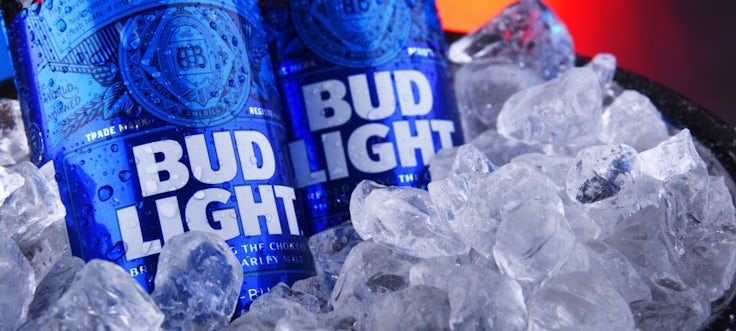Durex’s global lead on why brands must be braced for backlash when supporting LGBTQ+ communities
Reckitt’s global brand director for Durex, Eleonore Murauer, says brands’ presence at Pride was tested in 2023 after high-profile backlashes.
 The presence of brands has been a feature of Pride for many years now, however 2023 “felt very different to previous Prides”, according to Reckitt’s global brand director for Durex, Eleonore Murauer.
The presence of brands has been a feature of Pride for many years now, however 2023 “felt very different to previous Prides”, according to Reckitt’s global brand director for Durex, Eleonore Murauer.
“This year felt like there was something at stake,” she said, speaking at Outvertising Live yesterday (22 November).
Pride month takes place in June each year, with many companies running activations to celebrate the LGBTQ+ community during the period. Brands seemingly felt more pressure to get their involvement right this year, though as Pride kicked off a month after the Bud Light/Dylan Mulvaney controversy, which saw some consumers boycott the brand after its tie-up with the trans influencer.
The backlash led to owner AB InBev recording a 14% volume decline in the US, seeding a narrative of “go woke, go broke”, according to Outvertising joint-CEO Marty Davies. While the narrative that supporting progressive causes such as LGBTQ+ rights will cause brands to lose consumers and suffer financially is far from accurate, it made many brands “nervous” around Pride 2023, she said.
In previous Prides it felt like brands were “rushing to the rainbow”, Reckitt’s Murauer added, however, this year companies doing anything felt like it could potentially pose a risk.
Bud Light’s ad backlash shows the complexity of mass marketing
“I think it really forced brands to introspect, and ask, are we in there for the long-haul?” she said.
Also speaking on the panel was Stonewall associate director of communications and campaigns Sasha Misra. She noted that for previous Prides it had been relatively “easy” for brands to engage, with campaigns carrying messages like “Love is Love”.
The Bud Light controversy and other stories of backlash against brands supporting the LGBTQ+ community, meant many brands were doing “a lot of soul-searching this year”, she noted.
As a result, Davies believes there were less brands taking part in Pride in 2023.
“I’m pretty certain there were some brands keeping campaigns in pocket,” they said.
Braving the backlash
Reckitt’s Murauer said brands should go into Pride campaigns, prepared for the backlash it might bring.
Misra concurred: “Forewarned is forearmed,” she said.
Being prepared means protecting your talent and your team, and having responses ready to go.
Davies gave the example of Nike as a brand that handled backlash well. Like Bud Light, it too did a partnership with Dylan Mulvaney, in a post that showed her wearing one of the brand’s sports bras.
Unlike Bud Light, which sought to distance itself from Mulvaney in wake of the controversy and has taken the stance of downplaying the partnership and its association with the influencer, Nike followed through on the tie-up.
Brands’ approach to LGBTQ+ marketing tested after backlashes
“The controversy quickly died away when Nike just stood behind it,” Davies said.
Stonewall’s Misra gave Wickes as another example of a brand that has done a good job at withstanding backlash. She said for her, the best brand activations are those that come with more than just a campaign. For example, Wickes has called for an end to conversion therapy in its Pride activations, rather than just adopting a generic rainbow.
“Some organisations took the challenge and wanted to do something more meaningful,” Misra added.
Ensuring your brand is internally supporting its LGBTQ+ colleagues before externally doing Pride campaigns is extremely important, the panelists noted. Murauer said Reckitt took time to get it right internally before doing Pride activations.
It’s also important to have support from the top of your organisation, she said, as was the case with Reckitt.
Brands not handling backlash well is “really unhelpful” for the LGBTQ+ community as well as brands doing work in the space, Davies noted.







Comments